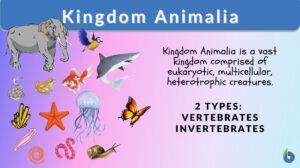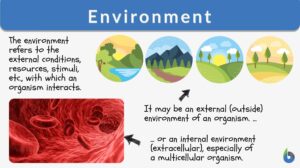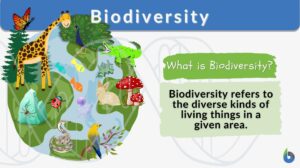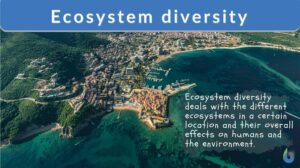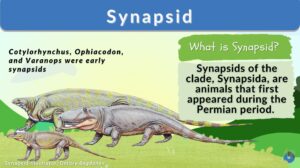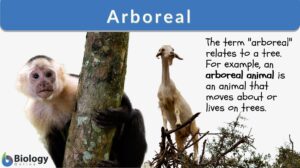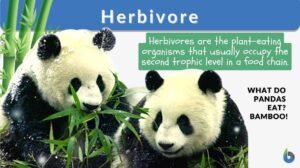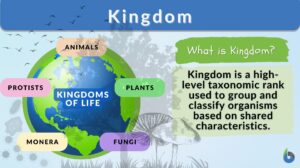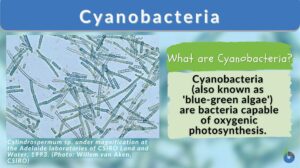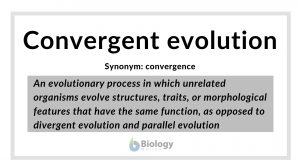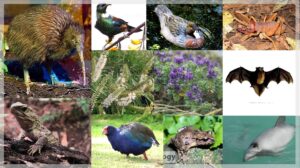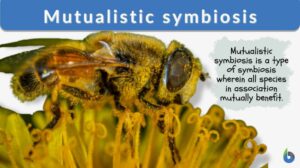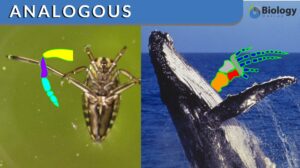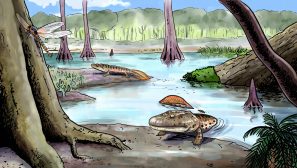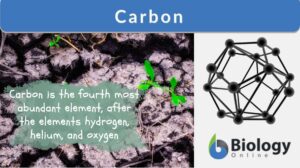Search Results for: terrestrial animal
Terrestrial animal
Definition noun, plural: terrestrial animals Any animal that lives, grows and reproduce on terrestrial (or... Read More
Terrestrial plant
Definition noun, plural: terrestrial plants Any animal that lives, grows and reproduce in aquatic... Read More
Kingdom Animalia
Kingdom Animalia Definition Each person can say that they know of or can name at least one animal. However, do people know... Read More
Environment
Environment Definition What does environment mean? If you mean physical environment, then it is defined as the surrounding... Read More
Book lungs
Book Lungs Definition Lungs are known as the organs that help organisms breathe. When we think of lungs, we think of the... Read More
Biodiversity
The biological world or life on earth is a marvel that has amazed us since time immemorial. The rich natural diversity of... Read More
Ecosystem diversity
Ecosystem Diversity Definition What is ecosystem diversity? Ecosystem diversity deals with the study of different... Read More
Locomotion
Definition noun The ability of cells or organisms to move and propel itself from place to place Supplement Locomotion in... Read More
Biodiversity
Biodiversity Lead Author: J. Emmett DuffyThis article has been reviewed and approved by the following Topic Editor: John... Read More
Decomposer
Decomposer Definition The organisms that carry out the process of decay or breakdown of the dead organism are known as... Read More
Cyanobacteria
Cyanobacteria Definition Cyanobacteria is a group of photosynthetic bacteria widely distributed in various aquatic habitats... Read More
Macrophytes
Introduction Examples of Macrophytes. (Source: Canada's AquaticEnvironments) ... Read More
Living things
Living Things Definition A living thing pertains to any organism or a life form that possesses or shows the characteristics... Read More
Turgor pressure
In biology, turgor pressure pertains to the pressure that is exerted by the fluid (e.g. water) against the cell wall. It is... Read More
New Zealand’s Unique Geographical History
Written by: Maria Victoria GonzagaPeer-reviewed by: Cathy Buntting, Ph.D. and Andrea SoanesNew Zealand is... Read More
Convergent evolution
Convergent evolution definition What is convergent evolution? Convergent evolution is a concept in evolutionary biology... Read More
Chlorophyll
Why are most plants green? Have you ever had the same question? Perhaps, you’ve been told that the plants are green... Read More
New Zealand’s Biodiversity
Written by: Maria Victoria GonzagaPeer-reviewed by: Cathy Buntting, Ph.D. and Andrea SoanesWhy is New... Read More
Mutualistic symbiosis
Mutualistic Symbiosis Definition In order to understand what a mutualistic symbiotic relationship means, we will break down... Read More
Amphibians & Early Reptiles
Amphibia Definition (Science: zoology) Amphibia is one of the classes of vertebrates.The amphibia are distinguished by... Read More
Detritivore
Definition noun, plural: detritivores An organism that feeds on detritus or organic waste Supplement A detritivore pertains... Read More
Transpiration
Definition noun (physics) The passage of gases through fine tubes or through a porous substance. (botany) The loss of water... Read More
Antarctic realm
Definition noun A biogeographic realm that covers the Antarctica Supplement Biogeographic realms are large spatial regions... Read More
Chelicerate
Definition noun, plural: chelicerates Any of the species belonging to the subphylum Chelicerata Supplement The chelicerates... Read More
Cell plate
Definition noun A disc like structure in the plane of the equator of the spindle that separates the two sets of chromosomes... Read More



